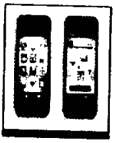题型:短文填空 题类:常考题 难易度:普通
广东省惠州市惠城区2020届九年级上学期英语期末考试试卷
China is a country with many colorful days and festivals. The Dragon Head Raising Day (Longtaitou) is one of them. This special is on the second day of the second month in the Chinese lunar calendar (阴历). It stands the start of spring and farming.
The dragon is important in Chinese culture. We Chinese people call the "descendants (传人) of the dragon". Therefore, people the Dragon Head Raising Day with many customs(传统) about dragons.
On the day in ancient times(古代), people ashes (灰) in the kitchen. This was to "lead the dragon into the house". People believed that with the of the dragon, they could have a good harvest (收成) autumn.
Also, people eat special on that day. The foods are usually named after dragons. For example, people eat "dragon whisker (细须)" noodles and dumplings called "dragon teeth".
Today, many customs have disappeared. But one that has is the cutting of hair. It was said that a haircut during the first lunar month may bring bad luck to the — mother's brothers. So many people have their hair cut on the Dragon Head Raising Day.
| so, true, kind, say, much, invite, you, instead polite, activity |
When someone asks you to do something you do not feel like doing, what should you do? It's a good idea to say “no” at this time. It's better to spend more time on some useful {#blank#}1{#/blank#} .However, you may worry others will think you impolite or{#blank#}2{#/blank#} . What should you do? Here are some tips that may help you.
It is OK to make up white lies. That doesn't mean you are dishonest. {#blank#}3{#/blank#} , it may make both you and the other person pleased and comfortable.
When {#blank#}4{#/blank#} to a party or some other events that you do not want to take part in, you can say, “No, but thanks for the invitation. That's very kind of you.” In this way you can not only refuse{#blank#}5{#/blank#} but make the person who invited you feel comfortable.
When you don't want to lie, just tell the {#blank#}6{#/blank#} . You may say like this, “I want to spend more time on myself,{#blank#}7{#/blank#} I've decided to say‘no'to these activities.” In this way, people will see that you respect yourself, and as a result they'll also pay you{#blank#}8{#/blank#} respect.
My last suggestion is to just do it. You may feel uncomfortable at first, but this is not the reason for {#blank#}9{#/blank#} “no”. Never make anything more complicated (复杂的)than it is.
Feel proud of {#blank#}10{#/blank#} for being strong enough to say “no”.
influence, know, it, everyone, favorite, culture, history, novel |
Journey to the West is one of the greatest {#blank#}1{#/blank#} in China. It has a long {#blank#}2{#/blank#} in China. It reflected Chinese great {#blank#}3{#/blank#} The book has enjoyed great popularity among the people and has exerted a tremendous (巨大的) {#blank#}4{#/blank#} on Chinese minds. Many of the characters and stories in the book {#blank#}5{#/blank#} to {#blank#}6{#/blank#} in China, not only including housewives, but also children. {#blank#}7{#/blank#} writer is Wu Cheng'en. The Monkey King is our {#blank#}8{#/blank#} character.
将下列单词或词组填入空格,每空格限填一词,每个单词或词组只能填一次。
A. widely B. suffer C. health D.thinner E. complain of |
With such a large rise on mobile phone users around the world over the last 10 years, many people are worried about {#blank#}1{#/blank#} possible problems. For some time, scientists have been thinking that mobile phones could lead to cancer.But so far,there is no strong evidence (证据)for this.
The Norway Institute of Public Health and the UK 's Health Protection Agency both released some studies last year.They said that there was no link found between mobile phone radiation(辐射) and cancer.
However, many mobile phone users often {#blank#}2{#/blank#} headaches, dizziness (头晕)and even feeling sick.Last October,a court case (诉讼案件)in Italy said that heavy mobile phone usage had caused brain cancer in one man.
He had used a mobile phone up to six hours a day for 12 years.
But the biggest problem with research now is that it is too early to reach conclusions.Mobile phones have only been {#blank#}3{#/blank#} used since the 1990s, and cancers can take many years to develop.
There is also still a strong argument that mobile phones are a major risk for children."Inner child,small central brain structures are going to be exposed(暴露),"said Dr.Annie,"Besides,kids have a skell(头盖骨) which is {#blank#}4{#/blank#}.
There is much more water in their brain, so there are many reasons that they take in more of the same radiation."

试题篮